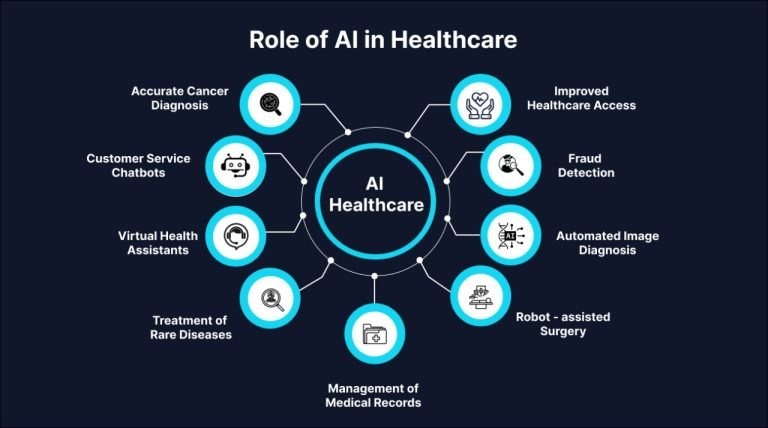In a groundbreaking stride towards bolstering cybersecurity measures in the healthcare industry, Artificial Intelligence (AI) is emerging as a formidable guardian of patient data. The integration of AI technologies is transforming how healthcare organizations combat cyber threats, ensuring a secure environment for sensitive medical information.
Cybersecurity Challenges in Healthcare:
The healthcare sector, with its vast repository of patient records and sensitive data, has become a prime target for cybercriminals. Ransomware attacks, data breaches, and insider threats have posed significant challenges, prompting a reevaluation of cybersecurity strategies across the industry.
AI Takes Center Stage:
Enter Artificial Intelligence. This cutting-edge technology is now at the forefront of healthcare cybersecurity, offering a proactive approach to identify, prevent, and respond to cyber threats. Machine learning algorithms, a subset of AI, play a pivotal role in real-time threat detection, offering healthcare organizations a robust defense mechanism.
Revolutionizing Threat Detection and Prevention:
Unlike traditional cybersecurity methods, AI-powered systems can analyze vast amounts of data swiftly, identifying patterns indicative of potential threats. This capability allows for rapid and accurate threat detection, minimizing the risk of data breaches and ensuring the confidentiality of patient information.
Enhanced Incident Response:
The need for swift incident response in healthcare cannot be overstated. AI facilitates quicker identification and containment of cyber incidents, minimizing the impact on operations and patient care. The integration of AI in incident response protocols is proving to be a game-changer.
Securing Sensitive Healthcare Data:
With the proliferation of Electronic Health Records (EHRs), securing patient data has become a top priority. AI contributes to data encryption, access control, and privacy measures, ensuring that sensitive medical information remains confidential and protected.
Ethical Considerations and Transparency:
As AI becomes an integral part of healthcare cybersecurity, ethical considerations and transparency are paramount. Striking a balance between leveraging AI’s power and ensuring responsible use is crucial to maintaining public trust and upholding ethical standards.
Looking Ahead:
As the healthcare industry continues to embrace digital innovations, the role of AI in cybersecurity is set to expand. Anticipated trends and challenges are on the horizon, and ongoing research aims to further refine AI applications to safeguard healthcare data effectively.
In conclusion, the marriage of Artificial Intelligence and healthcare cybersecurity marks a new era in safeguarding patient information. With AI-driven technologies at the helm, the healthcare industry is better equipped than ever to navigate the evolving landscape of cyber threats, ensuring a secure and resilient future for patient data.






